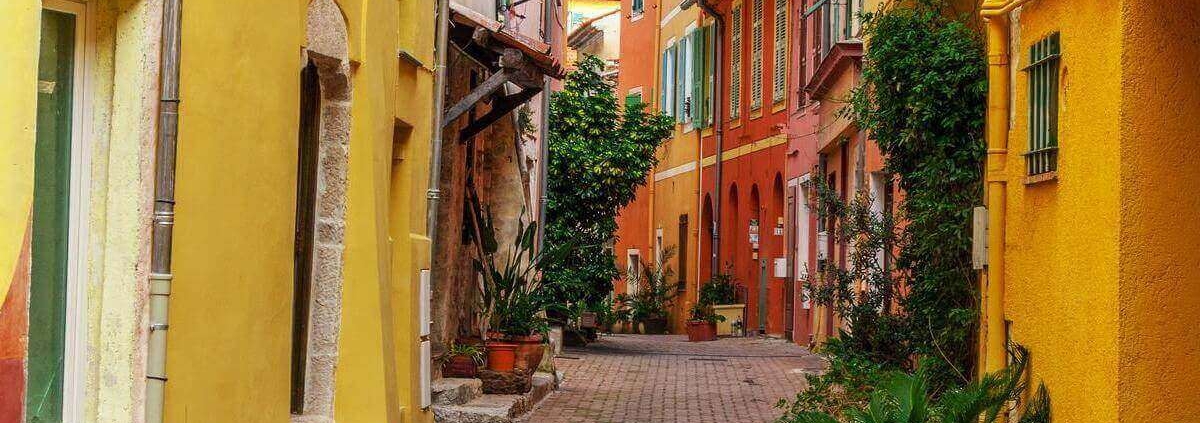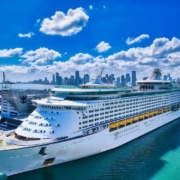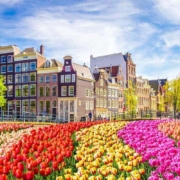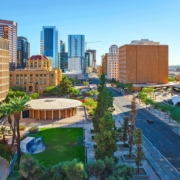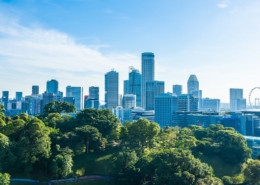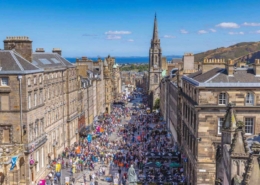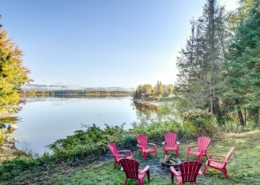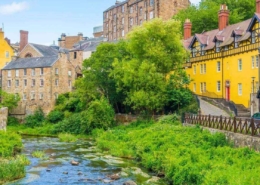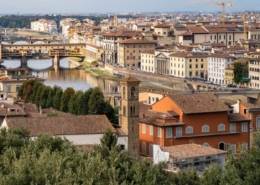Understanding Airbnb Profitability in Nice, France: A Detailed Analysis
- The Best European Cities for Airbnb Investments
- The Best Cities for Airbnb Investment in France
- The Steps to Launch a Lyon Airbnb Venture, France
Nice, located along the shimmering French Riviera, is renowned for its scenic beauty, rich history, and vibrant culture. It is no surprise, then, that many investors and entrepreneurs turn to Airbnb to tap into the city’s thriving tourism industry. This article provides an in-depth examination of the profitability of running an Airbnb in Nice, shedding light on essential elements that potential hosts should consider.
1. Tourism Dynamics in Nice: An Evergreen Attraction
The French Riviera, with Nice as its crown jewel, continues to mesmerize travelers worldwide.
Key Statistics:
- Annual Tourist Arrivals: Each year, Nice welcomes about 5 million visitors, driven by its unique blend of culture, history, and natural beauty.
- Average Stay Duration: The average tourist spends from 1 to 6 days (80%), allowing ample time to explore the city’s attractions and indulge in local experiences.
- Peak Season: From June to August, the summer allure draws the highest number of tourists, with the Mediterranean climate serving as an added attraction.
2. Potential Return on Investment (ROI) and Earnings Overview
Airbnb’s success in Nice is largely attributable to the potential ROI property owners can achieve.
Revenue Insights:
- Average Daily Rate (ADR): A typical Airbnb listing in Nice fetches around $127 per night. This rate, however, can be influenced by the property’s location, type, and available amenities.
- Monthly Earnings: Hosts can earn between $2,000 and $3,000 monthly, contingent on their property’s occupancy rates.
3. Identifying High-Desirability Property Types
The type and location of the property can significantly impact its desirability among travelers.
Desirability Factors:
- Beachfront Properties: Those situated near the beach often have an edge, with the possibility of increasing the ADR by up to 30%.
- Historic Center Homes: Listings in proximity to the Old Town and other historic landmarks typically command a premium rate due to the enriched experience they offer.
- Modern Amenities: A modernized home equipped with amenities like fast Wi-Fi, air conditioning, and a fully-equipped kitchen can drastically elevate the guests’ stay experience.
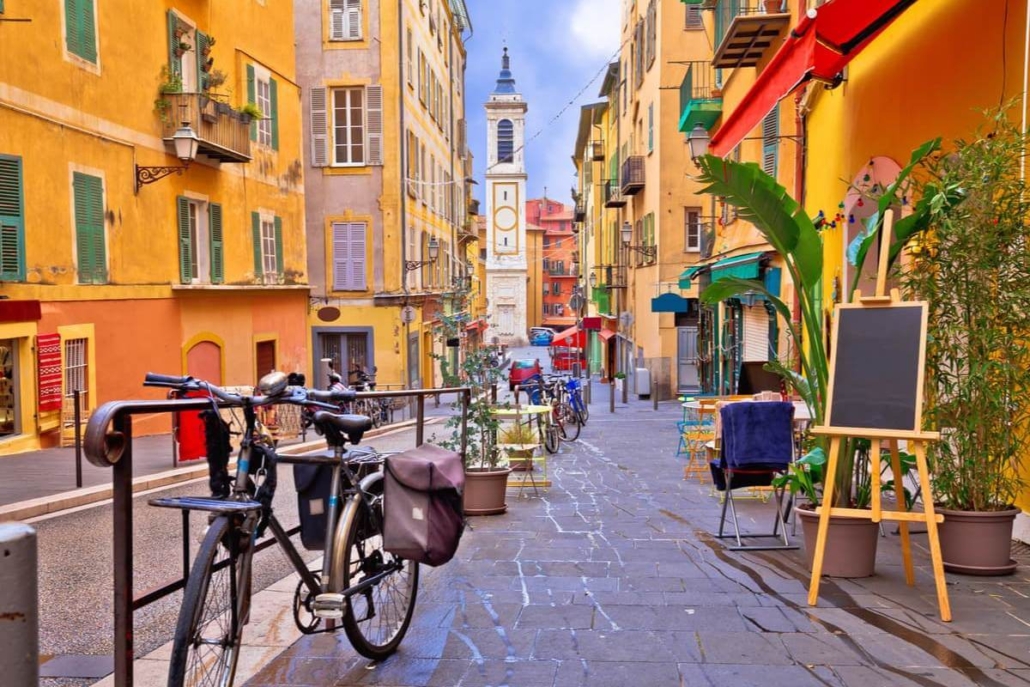
4. Navigating the Regulatory Landscape
Understanding the registration and declaration procedures is crucial for anyone considering Airbnb hosting in Nice. The process is determined by the type of residence, the duration of the rental, and specific city mandates.
Registration and Declaration Requirements
No Declaration Needed: You generally do not need to declare your accommodation if:
- You rent your primary residence for less than 4 months annually.
- You rent a room within your primary residence without a time limit.
For those renting out secondary residences, a simple declaration must be submitted to the local city authority.
Specific Registration Obligations: As per the Digital Republic and ELAN Law, some municipalities necessitate a “registration” for anyone listing an entire tourist-furnished accommodation. The steps involve:
- Acquiring a registration number from the city hall’s website.
- Incorporating this number into your Airbnb listing prior to hosting.
Mandatory Registration Scenarios:
- Renting an entire primary or secondary residence or commercial space, regardless of ownership or rental status.
- Renting the full accommodation. Individual rooms are exempt from this requirement.
No Registration Needed If:
- Renting a single room within your primary residence.
- Operating a bed and breakfast, hotel, or similar accommodation.
- Renting under the “bail mobilité” (mobility lease) scheme, designed for specific tenants like students, interns, etc.
- Renting for extended durations, i.e., a minimum of one year.
Renting Limits: A cap is placed on renting primary residences, restricting it to 120 days annually.
Tourist Tax
Municipalities may impose a tourist tax on guests. The amount varies based on the accommodation type and its classification. Specific rates can be referenced from the ‘Rates of the tourist tax by municipality’ online or at local town halls and tourist offices.(Qu’est-ce que la taxe de séjour ? | Service-public.fr)
Who Pays and How?
Guests staying in accommodations like tourist hotels, furnished rentals, palaces, and marinas are liable. Payment is made directly to landlords or online reservation services, which then forward it to the municipality.
Exemptions:
Certain groups are exempt, including children under 18, seasonal workers in the municipality, emergency accommodation beneficiaries, and those staying in low-rent accommodations.
5. Anticipating Challenges and Innovating Solutions
To succeed and maximize profitability, hosts should be prepared to tackle potential challenges head-on.
Challenges and Mitigating Strategies:
- Seasonal Demand: The influx of tourists is seasonal. During off-peak months, occupancy may dip. A solution is to offer seasonal discounts or special packages to attract guests.
- Local Competition: As Airbnb grows in popularity in Nice, standing out becomes paramount. A two-pronged strategy involves investing in professional photography to showcase the property and crafting compelling descriptions that highlight unique selling points.
Conclusion
In summary, Nice, a radiant gem on the French Riviera, offers significant profitability potential for Airbnb hosts thanks to its rich tourist appeal. While the allure of hosting in this Mediterranean paradise is undeniable, success hinges on a nuanced understanding of market dynamics, strict adherence to local regulations, and the ability to cater to the diverse desires of discerning travelers. By navigating these intricacies and consistently elevating offerings, hosts can both maximize earnings and contribute to the rich tapestry of experiences that draw millions to Nice annually.

